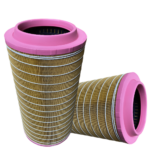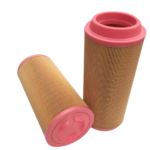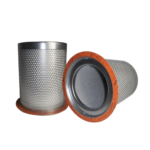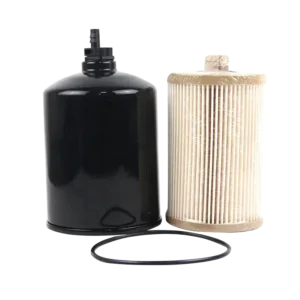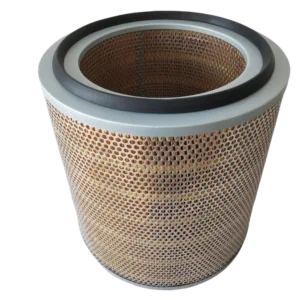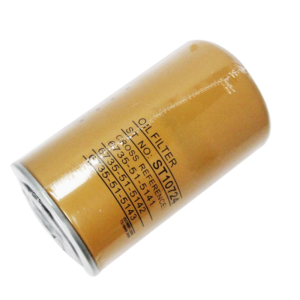One of the most noticeable signs that your air compressor filter needs replacing is a decline in air quality. A well-functioning filter is essential for trapping dust, dirt, and other contaminants that can compromise the purity of the compressed air. When the filter becomes clogged or damaged, these particles can bypass the filtration system, leading to a significant increase in airborne impurities.
This can be particularly problematic in environments where clean air is critical, such as in manufacturing processes, food production, or medical facilities. The presence of contaminants can not only affect the quality of the end product but also pose health risks to workers. Moreover, decreased air quality can manifest in various ways, including unpleasant odors or visible dust particles in the air.
If you notice that the air coming from your compressor has a strange smell or if there is an increase in dust accumulation around your workspace, it may be time to inspect and replace the filter. Regular maintenance and timely replacement of the filter can help ensure that the air quality remains high, thereby protecting both equipment and personnel from potential harm.
Key Takeaways
- Decreased air quality can be a sign that your air compressor filter needs replacing, as it may not be effectively removing contaminants from the air.
- Increased energy consumption could indicate that the filter is clogged and causing the compressor to work harder to produce the same amount of air.
- Unusual noises or vibrations coming from the compressor may be a result of a dirty or damaged filter, causing strain on the system.
- Reduced air pressure could be a sign that the filter is clogged and restricting the flow of air through the compressor.
- Visible debris or contaminants in the air or around the compressor are a clear indication that the filter is not effectively capturing and removing particles.
Increased Energy Consumption
Another critical indicator that your air compressor filter may need replacing is a noticeable increase in energy consumption. A clogged or inefficient filter forces the compressor to work harder to draw in air, leading to higher energy usage. This not only results in increased operational costs but can also shorten the lifespan of the compressor itself due to the added strain.
If you observe a sudden spike in your electricity bills without any corresponding increase in usage, it may be worth investigating the condition of your air compressor filter. In addition to financial implications, increased energy consumption can have environmental consequences as well. Higher energy usage typically translates to a larger carbon footprint, which is a growing concern in today’s eco-conscious world.
By ensuring that your air compressor filter is clean and functioning optimally, you can contribute to energy efficiency and sustainability while also saving money in the long run.
Unusual Noises or Vibrations
Unusual noises or vibrations emanating from your air compressor can serve as a warning sign that something is amiss, including the potential need for a filter replacement. A properly functioning air compressor should operate relatively quietly and smoothly. If you begin to hear rattling, hissing, or other abnormal sounds, it may indicate that the filter is obstructed or that there are other issues within the system. These noises can be a result of increased airflow resistance caused by a dirty filter, which forces the compressor to work harder and can lead to mechanical wear over time. Vibrations can also be a symptom of an underlying problem with the compressor’s components.
If the filter is clogged, it may cause imbalances within the system, leading to excessive vibrations that can damage internal parts. Addressing these issues promptly by replacing the filter can help restore normal operation and prevent further complications. Regular monitoring of your compressor’s performance and addressing any unusual sounds or vibrations can save you from costly repairs down the line.
Reduced Air Pressure
A significant drop in air pressure is another clear sign that your air compressor filter may need replacing. The filter plays a crucial role in maintaining optimal airflow; when it becomes blocked, it restricts the amount of air entering the system. This restriction can lead to insufficient pressure levels, which can affect the performance of pneumatic tools and machinery that rely on compressed air.
If you notice that your tools are not operating as efficiently as they once did or if they are struggling to maintain pressure, it is essential to check the condition of your air compressor filter. In some cases, reduced air pressure may also lead to inconsistent performance across different tools or applications. For instance, if you are using multiple pneumatic devices simultaneously and one or more are underperforming, it could be due to inadequate airflow caused by a compromised filter.
Regularly inspecting and replacing your air compressor filter can help ensure consistent performance and reliability across all applications, ultimately enhancing productivity and reducing downtime.
Visible Debris or Contaminants
Finally, one of the most straightforward indicators that your air compressor filter needs replacing is the presence of visible debris or contaminants on or around the filter itself. A clean filter should appear free of dust and grime; however, if you notice an accumulation of dirt, oil, or other particles, it is a clear sign that the filter has reached its capacity and is no longer effective. This visible buildup not only compromises air quality but can also lead to further contamination within the compressor system.
Additionally, inspecting for debris can provide insights into other potential issues within your compressed air system. For example, if you find excessive oil on the filter, it may indicate a problem with oil separation or leaks elsewhere in the system. Addressing these issues promptly by replacing the filter and investigating any underlying causes can help maintain optimal performance and extend the lifespan of your air compressor.
Regular maintenance checks that include visual inspections of the filter can prevent more significant problems from developing over time.
FAQs
What is an air compressor filter?
An air compressor filter is a component of an air compressor system that is designed to remove contaminants, such as dirt, oil, and water, from the compressed air before it is used in pneumatic equipment.
How often should an air compressor filter be replaced?
The frequency of air compressor filter replacement can vary depending on the type of compressor, the operating conditions, and the level of contaminants in the air. However, a general rule of thumb is to replace the filter every 3 to 6 months.
What are the signs that an air compressor filter needs replacing?
The signs that an air compressor filter needs replacing include decreased air quality, increased energy consumption, unusual noises or vibrations, reduced air pressure, and visible debris or contaminants in the compressed air.
Why is decreased air quality a sign that the air compressor filter needs replacing?
Decreased air quality is a sign that the air compressor filter needs replacing because it indicates that the filter is no longer effectively removing contaminants from the compressed air, which can lead to damage to pneumatic equipment and potential safety hazards.
How does a dirty air compressor filter lead to increased energy consumption?
A dirty air compressor filter can lead to increased energy consumption because it causes the compressor to work harder to maintain the same level of air pressure, resulting in higher energy usage and increased operating costs.

